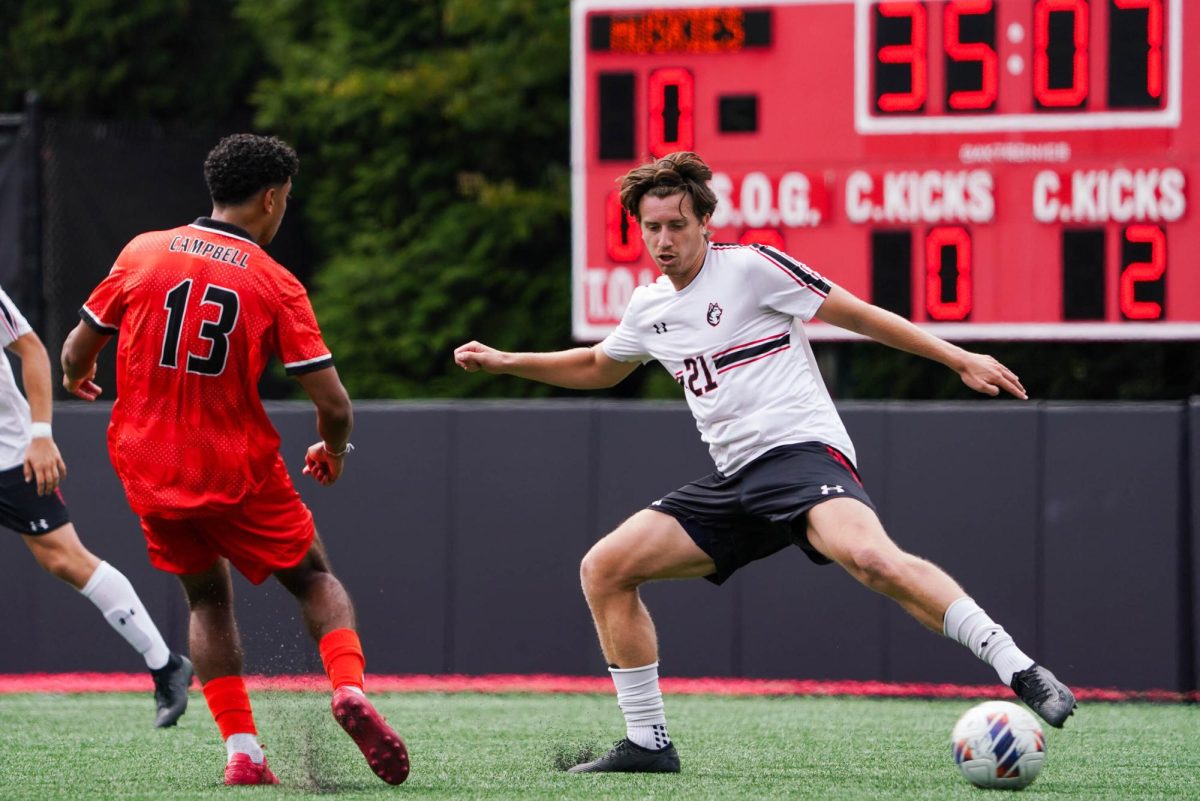COVID-19 has created new challenges, labor issues for faculty, graduate students
October 9, 2020
The Graduate Employees of Northeastern union, or GENU-UAW, is preparing to pressure the university to extend PhD students’ funding timelines.
GENU-UAW is calling the university to grant PhD students a “one-year extension on degree timelines and funded graduate assistantships, including NUSHP health insurance and tuition remission,” via a petition written by five PhD students and one English professor.
One of the authors, who requested to remain anonymous in fear of university retaliation, explained that the pandemic has made it very difficult for many PhD students to meet their previously established deadlines.
“I haven’t talked to a single PhD student in my department or even across colleges who isn’t feeling a complete lack of ability to get their research work done or their dissertation work done in this climate with the pandemic,” the anonymous PhD student said. “For someone in my position, interlibrary loan is shut down, so I have less of an opportunity to get texts and things like that I need right now. There are measures in place at the local level, like my department has made money available that would usually be for travel to purchase those kinds of materials, but it’s a little tougher to get that stuff which poses delays.”
Even beyond the logistical issues, the pandemic has both been traumatic for many and forced a number of PhD students, most of whom also teach classes, to take on additional work.
“I think everyone is just feeling the trauma of the pandemic … Faculty are feeling the strain whether that’s through child care or getting added professional responsibilities,” the anonymous PhD student said, highlighting the difficulties of adjusting to teaching under Northeastern’s NUflex model. “This is a sort of new territory for a lot of us, and that’s more time that we’re pouring into supporting our students … that we then aren’t able to devote to our degrees.”
The authors of the petition, the student said, are cautiously optimistic that the university will respond to their concerns. However, while the university insists that they are taking graduate students’ concerns seriously, the authors also feel that the university has a mixed track record of listening to graduate students’ demands and concerns.
“I am pessimistic in some ways because the administration has a long history of not listening to grad students who have organized,” the anonymous PhD student said. “The simplest of this is not recognizing our union, GENU-UAW. When we were poised to have a democratic election, they told us, ‘We’re not going to recognize that’ and [to] go take that up with Trump’s stacked National Labor Relations Board … I want to believe that the administration will do right by its graduate student workers, but history would maybe convince me otherwise.”
As of now, the university does not plan to extend PhD students’ funding.
“The university has been working to assist any students who have been impacted by the COVID-19 pandemic. Each student’s circumstances are unique and warrant a case-by-case solution. PhD students who have questions about their ability to continue their research and associated funding should contact their college to identify ways to continue their research progress and to determine if there is a need for additional funding,” said university spokeswoman Shannon Nargi via email. “Throughout the pandemic, the PhD Network has communicated to PhD students that their funding will continue through the summer and into [the 2021 academic year] consistent with the funding commitments made at admissions.”
The request to extend PhD funding is not the first time that graduate students have felt the university wasn’t listening to them during COVID-19.
“There are a lot of things that we’re still gathering information [about], so we have a survey out, [and] we’re getting our members’ opinions, but there seems to be a lot of consensus around the point [that] we haven’t had any input into this reopening process,” said Timothy LaRock, a computer science PhD candidate. “We would like to have input in the [reopening] process, and we would like to see NUflex be shifted drastically, online as much as possible rather than in person teaching.”
In addition to PhD students’ concerns regarding research, the pandemic has presented a host of other labor issues for part-time faculty — many of which are current PhD students.
Teaching assistants and instructors who spoke to The News expressed concerns in regards to teaching under Northeastern’s reopening plan, as well as their and students’ health in returning to the university.
“I think it’s both pedagogically unsound and dangerous. I think the administration is hoping to provide this shadow of a classroom experience that they say students want, but there hasn’t really been an effort to show how this will work in practice,” said Gregory Palermo, an English PhD candidate, research assistant and lecturer.
Some faculty feel the university should have encouraged online teaching more by instead making faculty opt for teaching in person if desired, rather than opt-out of in-person instruction.
“We think it should be opt-in so people who feel comfortable on campus or are kind of in a position where they are willing to take the risk, even recognizing that it may be unsafe, they can choose to work on campus, but the default should be that people continue working from home as much as possible. There’s as much online instruction as possible because there’s still a pandemic, there’s still hundreds of new cases every day, there’s tens of deaths across the state,” said LaRock. “Despite the fact that we’re in a better position than many other states, [COVID-19 cases are] still here.”
Max White, although he received his PhD back in 2015 from Northeastern, also shares concerns as a part-time English lecturer at Northeastern and Boston University. He explained that he would have to create a plan for teaching two sets of students, the ones attending in-person and the ones learning from home. However, the university isn’t going to pay faculty to learn how to teach online.
“I don’t have a month to learn an entire new modality. So even though they have [trainings from the Center for Advancing Teaching and Learning Through Research and Academic Technologies], we don’t really have the lead time to go about planning them. And as a part-timer, I’m not even getting paid for that. I am teaching, but I’m not getting paid to do the work for planning for the fall,” White said. “It’s not just part timers. Full-time non-tenure-track teaching professors at Northeastern work on nine-month contracts, so they’re also being put in a position to essentially have to teach themselves all this new stuff and then do more work while they’re not getting paid for it.”







